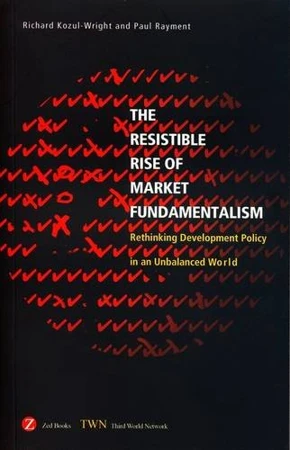✕
The Resistible Rise of Market Fundamentalism – The Struggle for Economic Development in a Global Economy

Level:
advanced
Blurb
"Stabilise, liberalise and privatise" has, since the debt crisis of the early 1980s, been the mantra chanted at developing countries by international financial institutions, donor countries and newspaper columnists with quasi-religious conviction. Policy debate has increasingly polarised into the rhetoric of extremes: trade liberalisers versus protectionists, cosmopolitan versus nationalist, the right-thinking versus the wrong-headed, and so on. In The Resistible Rise of Market Fundamentalism Richard Kozul-Wright and Paul Rayment expose the mix of selective evidence, mythical economic history, simplistic assumptions and opportunistic bias which comprise this prescription for economic development. They argue that attempts to apply a universal model of development have not only met with little or no success but are dangerously at odds with democratic principles. Insisting on a ready-made, "one size fits all" model increases the risk of policy reactions that are likely to undermine the peace, prosperity and global integration that the G7 countries and the international organisations are seeking to promote and in which the developing countries seek to share. Instead, developing countries must be given the freedom to experiment, to develop their own policies and discover what works in their own, national circumstances. On this basis, Kozul-Wright and Rayment set out a pragmatic, constructive and more hopeful approach to development than the simplicities of market fundamentalists.
We use cookies on our website. Click on Accept to help us to make Exploring Economics constantly better!

